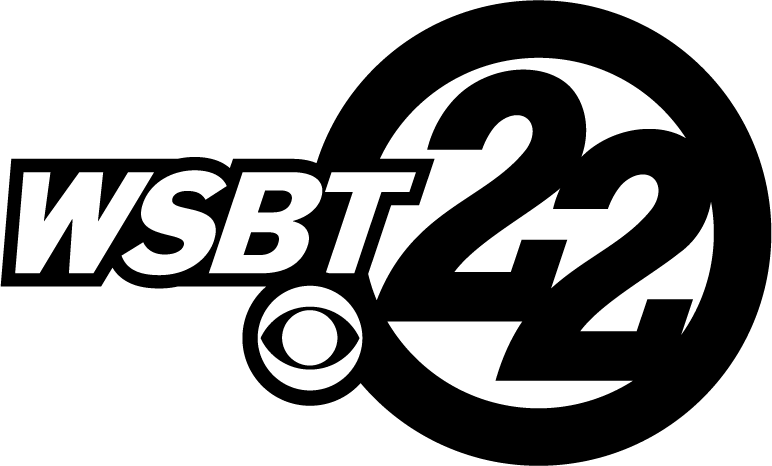-
Can forgetting your child in the car happen to just about anyone? – study
May 26, 2023
“When you talk about the forgotten baby scenarios, people often make assumptions about who forgets their babies, who the caregivers are,” co-author Nathan Rose said. “And there’s no evidence to support the idea that men are more likely to commit this kind of error than women, or vice versa.”
Originally published at news.nd.edu.
-

WSBT TV
Experts weigh AI concerns amid regulation discussions
May 22, 2023
“We definitely need regulation, we needed it yesterday, if not five years ago, because this is all getting away from us too quickly, and the real problem here is that there’s nobody in governments, who’s really tasked with understanding the powerful ability to use AI as a weapon,” said Dr. Lisa Schirch, Professor of the Practice at the Keough School of Global Affairs. Fellow Notre Dame Professor Dr. John Behrens also has concerns – especially when it comes to people using this technology inappropriately. "Now, it’s something that anybody can just download, or get access to, and start using, and that’s really going to cause some problems and that’s an area for concern for sure, and it might be an area for regulation,” said Dr. John Behrens, Notre Dame Director of College Technology Initiatives.
Originally published at news.nd.edu.
-

Forbes
Artificial Intelligence’s Higher Value: Spurring New Managerial Thinking
May 20, 2023
“Almost all jobs will be affected by AI because the core tools of the business world are going to be AI-enhanced at some point, if they aren’t already," says John Behrens, Ph.D., professor and digital technologies leader at the University of Notre Dame.
Originally published at news.nd.edu.
-
‘Dirty’ money? People pay in cash to forget about guilty purchases
May 19, 2023
“When a purchase is difficult to justify — like buying an overpriced bottle of water at the airport, cigarettes or candy — consumers pay with less-trackable methods, like cash, so they can eliminate the paper or electronic trail and ‘forget’ this guilty purchase,” says Christopher Bechler, who specializes in consumer behavior and social psychology with an emphasis on attitudes, persuasion, and financial decision-making, in a university release
Originally published at news.nd.edu.
-
How the Brain Forgets: When Memory Lapses Become Fatal
May 18, 2023
A new study looked at how and why caregivers sometimes forget their children in cars, leading to fatal heatstroke. Researchers at the University of Notre Dame set out to understand how and why this kind of forgetfulness is even possible. Nathan Rose, the William P. and Hazel B. White Assistant Professor of Brain, Behavior and Cognition in the Department of Psychology, set up an experiment to better understand this lapse in what researchers call prospective memory.
Originally published at news.nd.edu.
-

phys.org
Cash or card? Consumers pay strategically to forget guilty purchases, study shows
May 17, 2023
"Purchase Justifiability Drives Payment Choice: Consumers Pay With Card To Remember And Cash To Forget" is forthcoming in the Journal of the Association for Consumer Research from Christopher Bechler, assistant professor of marketing in Notre Dame's Mendoza College of Business, along with Szu-chi Huang from Stanford University and Joshua Morris, data science manager for Nike.
Originally published at news.nd.edu.
-

USA Today
Inbox overload? You are not alone. This is how many hours a week we spend on work emails
May 12, 2023
“Technology has expanded the options for communicating, making it more impersonal and accelerating the expectations others have for fast responses,” said Cindy Muir, professor of management and organization at the University of Notre Dame. “All of this can increase our workload and lead to burnout."
Originally published at news.nd.edu.
-

WNDU
Groundbreaking ceremony held for Foundry Field in South Bend
May 12, 2023
“Man, it feels great,” said Clinton Carlson, an associate professor at the University of Notre Dame. “The best part about it is seeing the community come out. The Boys & Girls Club were here yesterday. They got to sign posters that the kids made of these men that played on the Foundry Giants. We had Riley High School here yesterday helping paint all the murals and everything. And then to have family members — the Poindexters were here. A family that didn’t know their grandpa played baseball and he’s a key member of our community. He contributed by his labor at Studebaker and as a longtime sheriff’s deputy for our community.”
Originally published at news.nd.edu.
-
Burying bad 8-K news raises red flags
May 11, 2023
Many companies seek to effectively paper over bad news contained in filings with the Securities and Exchange Commission by publishing unrelated press releases on the same day, according to a release on a new multi-year study from Jessica Watkins, an assistant professor of accountancy at the University of Notre Dame, Caleb Rawson, an assistant professor of accounting at the University of Arkansas and Brady Twedt, a University of Oregon accounting professor.
Originally published at news.nd.edu.
-
Report: Companies Using Press Releases & SEC Filing Misdirection to Hide Bad News
May 11, 2023
“Consistent with our prediction, we find that managers disclosing negative news via SEC Form 8-K are more likely to issue a concurrent press release about an unrelated event when compared to managers disclosing positive or neutral news,” said Jessica Watkins, assistant professor of accountancy in Notre Dame’s Mendoza College of Business.
Originally published at news.nd.edu.
-
Optimism prevails: Uptrend messaging promotes healthier consumer behavior, study finds
May 10, 2023
“We find that uptrend messaging can be used to encourage healthy behaviors that improve consumer quality of life,” lead author John Costello, assistant professor of marketing at the University of Notre Dame, US, tells NutritionInsight.
Originally published at news.nd.edu.
-
Companies distract from bad news with unrelated news
May 08, 2023
The study, from the University of Notre Dame, examined close to 50,000 non-earnings-related 8-K filings between 2005 and 2018, where the firm also issued a news release on the same day.
Originally published at news.nd.edu.
-

phys.org
How to protect consumers from deceptive comparison pricing
May 03, 2023
Researchers from Duke University, University of Notre Dame, and Microsoft published a new Journal of Marketing article that examines using "true normal prices" during a sale as a way to reduce deceptive pricing tricks.
Originally published at news.nd.edu.
-

Inside Indiana Business
Notre Dame alums create glasses that project subtitles for the deaf
May 03, 2023
A pair of traditional looking glasses that project subtitles for a deaf or hard of hearing person is the bold vision of two recent University of Notre Dame graduates.
Originally published at news.nd.edu.
-
Marya Lieberman’s paper drug tests promote safety in low-resource settings
April 30, 2023
An estimated 10% of medical products in low- and middle-income countries are either falsified or substandard, according to the World Health
Organization. It’s particularly difficult in low-income regions to quickly and easily spot subpar medicines and identify their flaws.For years, chemist Marya Lieberman of the University of Notre Dame and her team have been developing analytical paper diagnostics
Originally published in Chemical & Engineering News
Originally published at science.nd.edu.
-

phys.org
Patient capital is in short supply, research finds
April 26, 2023
But research from the University of Notre Dame's Rafael Zambrana argues that mutual fund fee structures can be set up to incentivize long-term thinking, and this yields better results for investors with the patience to commit their capital.
Originally published at news.nd.edu.
-
Better to be cool than 'kool'
April 20, 2023
In a new study, Walker and John Costello, assistant professor of marketing at the University of Notre Dame, found that consumers deemed these tactics to be marketing gimmicks, and the brands insincere.
Originally published at news.nd.edu.
-

BBC News
The surprising science of climate protests
April 20, 2023
One study on the first Earth Day, on 22 April 1970, found a long-term impact on air quality in areas that had good weather that day – which researchers used as an estimate for participation in activities. "Our approach was to use weather to essentially mimic an experiment," says Daniel Hungerman.
Originally published at news.nd.edu.
-
Mass. firefighters and their families are on the front lines of a battle with 'forever chemicals'
April 19, 2023
“I got one of the 6,000 emails she sent,” recalled Graham Peaslee, a physics professor at the University of Notre Dame, who studies PFAS.
Originally published at news.nd.edu.
-
Notre Dame installing new solar array
April 13, 2023
The University of Notre Dame will install a 46,000-square-foot solar array on the west side of campus, along Indiana 933, as part of an ongoing effort to diversify its energy supply and achieve net zero campus carbon emissions by 2050.
Originally published at news.nd.edu.
-

phys.org
'Ragpickers' of Mumbai use entrepreneurship to find meaning, study shows
April 12, 2023
"Intersectionality in Intractable Dirty Work: How Mumbai Ragpickers Make Meaning of Their Work and Lives" was published in the Academy of Management Journal from Dean Shepherd, the Ray and Milann Siegfried Professor of Entrepreneurship at Notre Dame's Mendoza College of Business.
Originally published at news.nd.edu.
-

South Bend Tribune
Notre Dame student-written musical 'My Heart Says Go' takes on new life at Civic
April 12, 2023
Most musical theater smash hits don't get their start in South Bend, but University of Notre Dame musical theater professor and director Matt Hawkins says that's about to change with "My Heart Says Go."
Originally published at news.nd.edu.
-
Measures to spotlight health risks from PFAS in firefighter gear close to becoming Indiana law
April 10, 2023
But many firefighters and experts argue the standard set by that test is unreasonable. Among them is Graham Peaslee, a University of Notre Dame professor, who has used applied nuclear physics to measure and study PFAS in clothing, firefighter gear and various other materials.
Originally published at news.nd.edu.
-

Time
States Consider Banning Cosmetics Containing PFAS
April 10, 2023
A study by University of Notre Dame researchers released in 2021 found that more than half the cosmetics sold in the United States and Canada were awash with a toxic industrial compound associated with serious health conditions.
Originally published at news.nd.edu.
-

WSBT TV
First proactive U.S. Cybercrimes initiative launched in St. Joseph County
April 05, 2023
The St. Joseph County prosecutor's office, partnered with Notre Dame's Center for Research Computing and the university's Cybercrime Investigation, Research, and Education Initiative to begin identifying computers compromised by malware.
Originally published at news.nd.edu.
-

WNDU
St. Joseph County prosecutor’s office launches first-in-nation cybercrimes initiative
April 05, 2023
Thanks to Magnet, and partnerships between Cyber Software companies, the St. Joseph County Cyber Crimes Unit, and Notre Dame Student Investigators, St. Joseph County has been successfully using the software for months now.
Originally published at news.nd.edu.
-

South Bend Tribune
Investigators, Notre Dame partner with tech company to combat hacking in St. Joseph County
April 05, 2023
Most of the attacks go undetected, sometimes for years, by the individuals and companies that are targeted but officials with the St. Joseph County Prosecutor's office and the University of Notre Dame are hoping to change that locally.
Originally published at news.nd.edu.
-

ABC57
Officials partner with Notre Dame to fight cybercrime
April 05, 2023
The St. Joseph County prosecutor’s office is partnering with Notre Dame and Magnet Forensics to create the first cyber unit of its kind in the country.
Originally published at news.nd.edu.
-
Will a robot take my job? Notre Dame researcher says this view is overly pessimistic
March 31, 2023
With the impact of industrial robots on the US labor markets in the past two decades, and an ever-increasing presence of machine-driven technology (such as artificial intelligence and ChatGPT), many employees have feared that one day robots will take their jobs. Not necessarily so, according to research recently published by Yong Suk Lee, an assistant professor in the University of Notre Dame’s Keough School of Global Affairs.
Originally published at news.nd.edu.
-

phys.org
Will a robot take my job? Researcher says this view is overly pessimistic
March 29, 2023
With the impact of industrial robots on the U.S. labor markets in the past two decades, and an ever-increasing presence of machine-driven technology (such as artificial intelligence and ChatGPT), many employees have feared that one day robots will take their jobs. Not necessarily so, according to research recently published by Yong Suk Lee, an assistant professor in the University of Notre Dame's Keough School of Global Affairs.
Originally published at news.nd.edu.